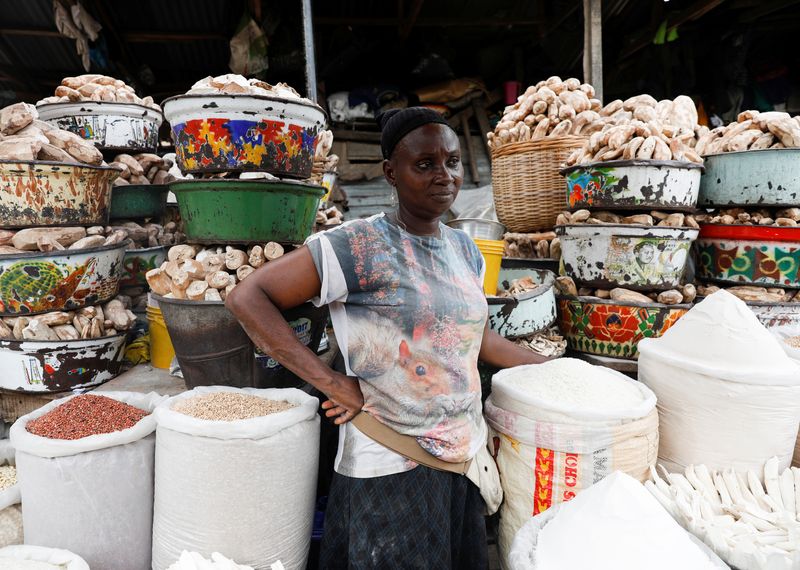By Elisha Bala-Gbogbo
ABUJA (Reuters) -Nigeria's inflation rate rose in September for the first time in three months, advancing to 32.70% in annual terms from 32.15% in August, the statistics agency said on Tuesday.
Analysts had said the inflation slowdown in July and August could be short-lived, after three petrol price increases since early September that have roiled citizens already grappling with the worst cost-of-living crisis in a generation.
The renewed rise in inflation raises the prospect the central bank could choose to continue with its rate-hiking cycle, after five hikes so far this year.
The Central Bank of Nigeria's next rate decision is due to be announced on Nov. 26.
Nigeria's petrol price increases are part of President Bola Tinubu's government's efforts to exit a costly fuel subsidy programme that has strained the public finances of Africa's most populous nation.
Other reforms launched by Tinubu to try to lift economic growth and woo investment include devaluing the country's naira currency, another strong contributor to inflationary pressures alongside crop damage caused by floods in food-growing regions.

Data from the National Bureau of Statistics on Tuesday showed food inflation rose to 37.77% year on year in September from 37.52% the previous month.
Economists expect the disinflation process to resume in the coming months, potentially allowing the central bank to switch from a hiking to an easing cycle early next year.